Mothballs are a popular way to deter animals and pests, but are they safe for your garden? Luckily, we did some research to learn more about mothballs and the best pesticides for your garden.
Mothballs are poisonous to many pests, including beetles, cockroaches, earwigs, and ants. Simply place mothballs in plastic bags around the perimeter of your garden, and they will help to keep pests out.
However, using mothballs with caution or using other pesticides instead is important. Here are some reasons why:
- Mothballs are Dangerous to Humans and Pets
- Mothballs Can Lead to Respiratory Problems
- Mothballs Can Contaminate the Environment
- Mothballs Can Kill Plants
In this post, we'll explore more about mothballs and whether or not it's a safe option for your garden. We'll also share some other tips for pest control. Keep reading to learn more!
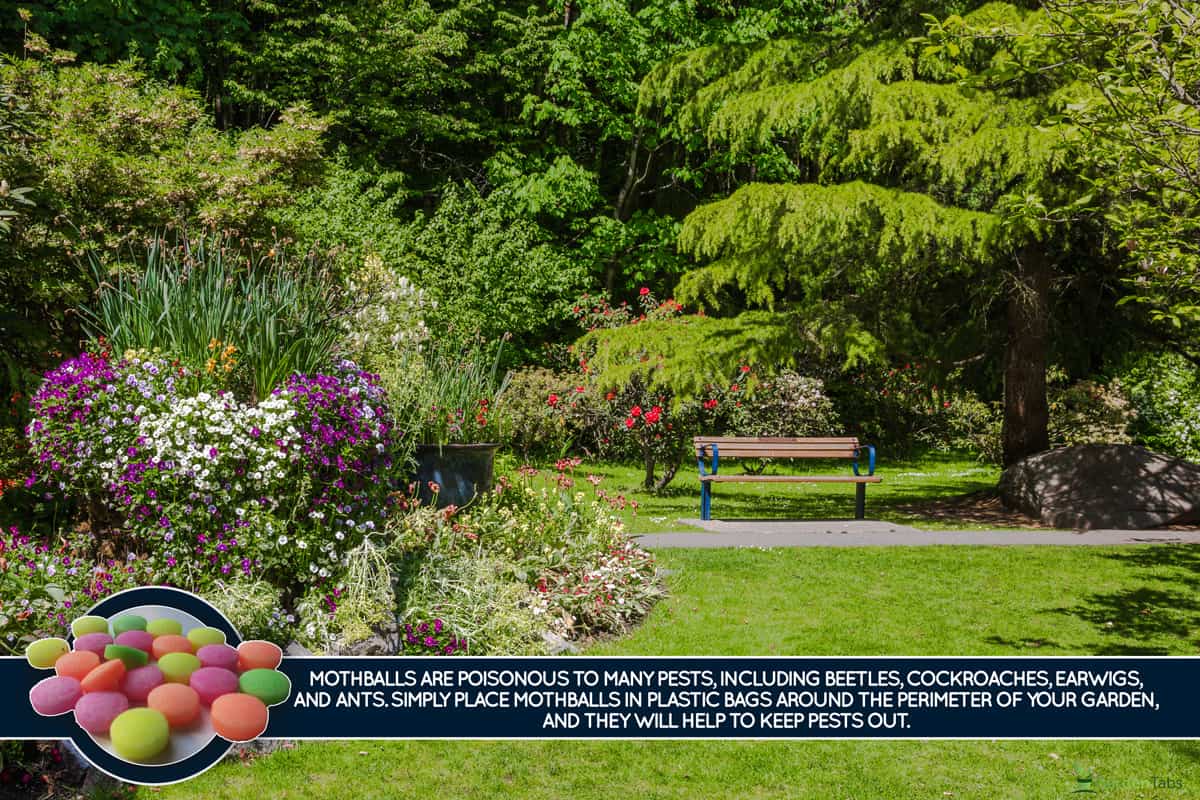
What is the Best Way to Use Mothballs in the Garden?
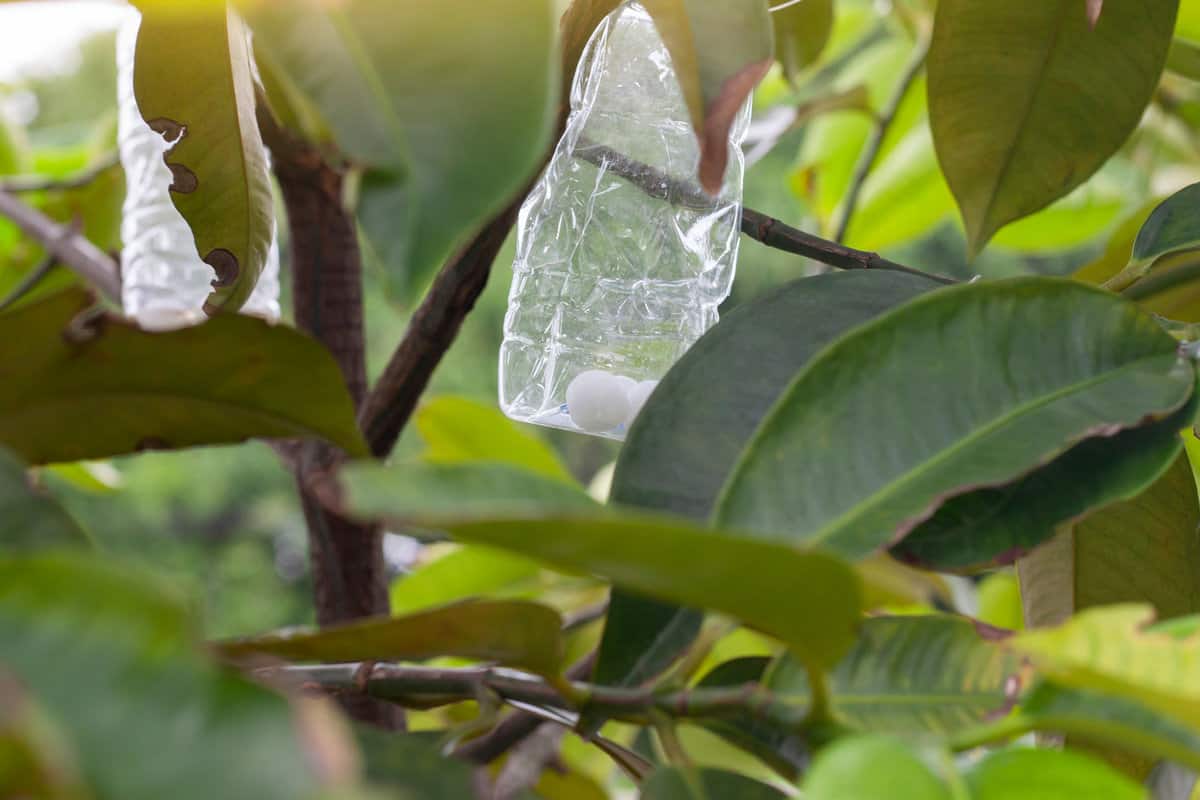
Mothballs are a common household item that can also be useful in the garden. They are most commonly used to keep moths from damaging clothing, but they can also be used outdoors to keep other pests away from plants.
The best way to use mothballs in the garden is to put the plant in a transparent plastic bag, like a cleaning bag. Then, add a few mothballs, and seal it for a week. This will create an aroma that will deter pests without harming the plant.
Additionally, mothballs can be placed around the garden's perimeter, near areas where pests are likely to enter.
Mothballs will release a gas that will kill any pests that come into contact with it. The gas is also effective at repelling pests, so they will not enter the garden in the first place.
However, it is important to be careful when using mothballs, as they can be harmful to pets and children if mishandled. When used correctly, mothballs can be a helpful tool in keeping your garden free of pests.
Will Mothballs Keep Animals Out of My Garden?
Mothballs are small balls of chemical pesticide that emit a strong, pungent odor. When mothballs are placed in an area, animals will be deterred by the smell and stay away. This makes them an effective way to keep animals out of gardens.
Mothballs are also effective at deterring insects, making them a versatile tool for pest control.
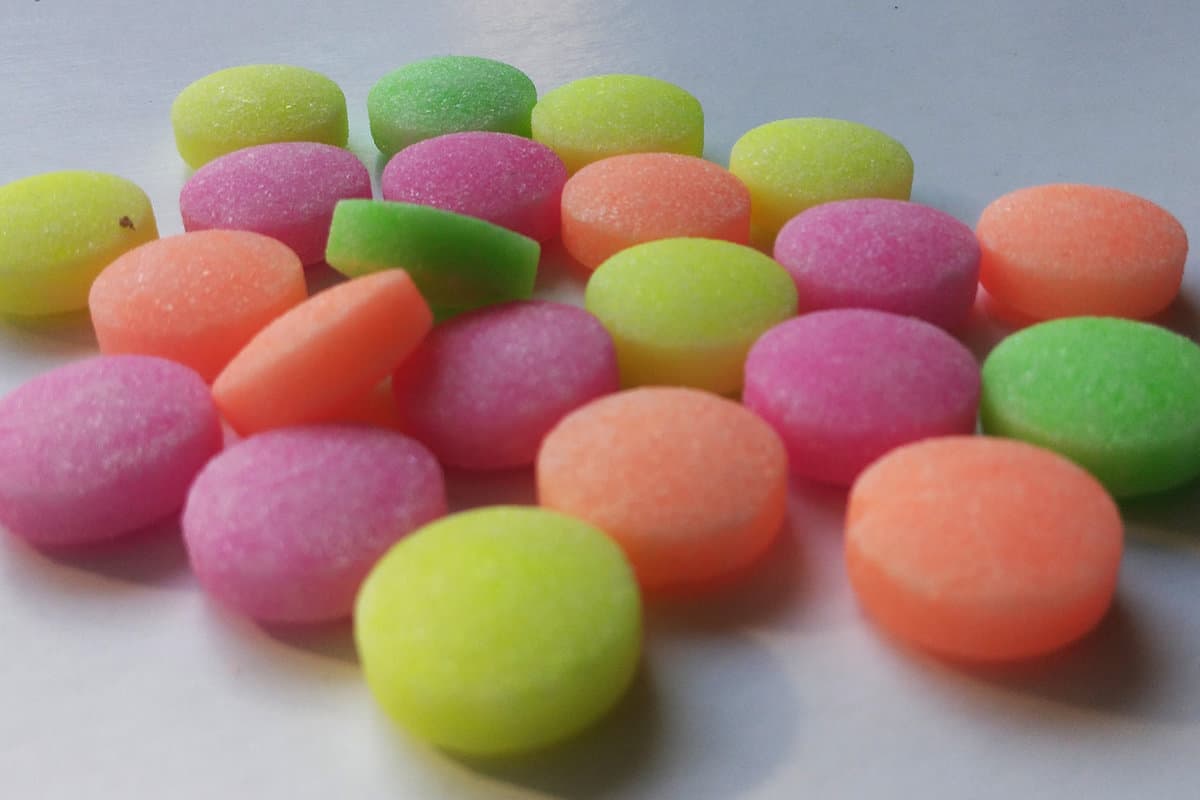
What Happens When Mothballs Get Wet?
When mothballs get wet, the chemicals inside them can become airborne, increasing the risk of inhalation or ingestion. The water also dissolves the waxy coating that protects the mothballs from evaporation, causing the odor to be more potent and sublimation to be more rapid.
As a result, it is important to keep mothballs dry and out of reach of children and pets.
How Long Will Mothballs Last Outside?
Mothballs are made of naphthalene, which is a white crystalline substance that vaporizes slowly. As the naphthalene vaporizes, it enters the air and repels pests.
But when mothballs are exposed to sunlight or high temperatures, the naphthalene vaporizes more quickly, making the mothballs less effective. In addition, rain and snow can also cause mothballs to dissolve more quickly.
As a result, mothballs should be placed in a dry, well-ventilated area if you want them to last as long as possible.
Is It Safe to Use Mothballs in the Garden?
Mothballs are commonly used to repel pests, but they come with several dangers.
- Dangerous to Humans and Pets: Unfortunately, mothballs are actually quite harmful to both humans and animals, and they should not be used in areas where people or pets may come into contact with them.
- Flammable: Naphthalene is highly flammable, and mothballs should never be placed near an open flame.
- Potentially Cause Respiratory Problems: Mothballs release a poisonous gas that can cause headaches and even seizures. Additionally, mothballs fumes can harm humans, causing respiratory problems and other health issues.
- Contaminate the Environment: In addition, the chemicals in mothballs can leach into the soil, harming plants and polluting groundwater. When they are used outdoors, mothballs can contaminate the soil and water, killing beneficial insects and affecting plant growth.
- Potentially Kill Plants: When mothballs break down, the resulting chemicals and fumes can damage plant leaves, preventing them from photosynthesizing properly. As a result, your plants may become yellow and stunted, and they could eventually die. Naphthalene in the soil could also compromise the plants' root structures.
Will Mothballs Hurt Garden Vegetables?
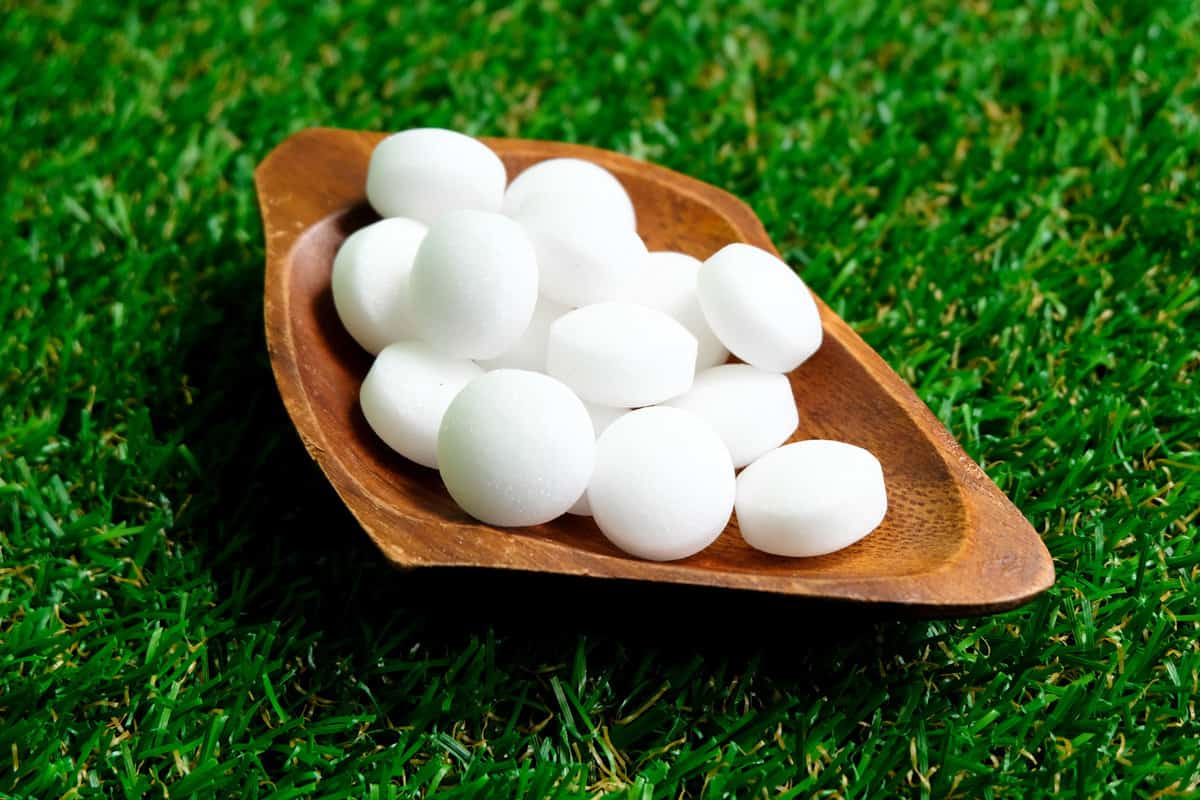
While mothballs are not fully toxic to plants, they can damage or kill them if they come into direct contact with the chemical. In addition, the fumes released by mothballs can be harmful to both plants and animals.
If you must use mothballs in your garden, be sure to keep them away from any areas where you are growing vegetables.
Are There Any Other Methods for Getting Rid of Pests in the Garden?
If you are looking for ways to reduce your reliance on pesticides, here are eight alternatives that you can try:
1. Attract Beneficial Insects
Ladybugs, lacewings, and other beneficial insects can help to keep garden pests in check. You can attract these helpful critters by planting a variety of flowers that bloom at different times of the year.
2. Use traps
There are a variety of traps that you can use to capture or kill garden pests. One option is to set up sticky traps. These are small pieces of cardboard or paper that are coated with a sticky substance.
Pests will be attracted to the trap and will get stuck when they try to land on it. Yellow sticky traps can be used to capture aphids, whiteflies, and other small insects.
View indoor and outdoor sticky traps on Amazon.
Another option is to use bait traps. These are similar to sticky traps, but they also contain bait that will lure pests into the trap. Once the pest has entered the trap, it will be unable to escape.
3. Practice Crop Rotation
Crop rotation is a great way to reduce the population of garden pests. By growing different crops in different areas of your garden each year, you will make it more difficult for pests to find their preferred food source.
4. Make An All-natural Pesticide
There are a number of recipes for homemade pesticides that you can try. These recipes usually call for ingredients like soap, oil, or herbs.
5. Encourage Predators
Birds, reptiles, and other predators can help to keep garden pests in check. You can attract these animals by providing food and shelter in your garden.
6. Hand-pick Pests
This may seem like a lot of work, but it is actually an effective way to reduce the population of garden pests. Simply remove any bugs that you see from your plants and dispose of them properly.
7. Utilize Physical Barriers
Additionally, you can use physical barriers such as screen doors or netting to keep pests from getting into the garden in the first place. By taking a few simple precautions, you can dramatically reduce the risk of pest damage in your garden.
Check garden netting kit on Amazon.
8. Choose Pest-resistance Plants
One of the most effective methods is to choose plants that are naturally resistant to pests. Many species of plants have evolved to deter pests, and by planting these species in your garden, you can help to keep pests at bay.
What Plants Are Good as Natural Pest Deterrents?
Anyone who has ever attempted to deter pests knows that it can be a difficult task. There are a wide variety of chemicals that can be used, but many of them are harsh and potentially harmful.
Fortunately, there are a number of plants that can serve as effective natural deterrents.
- Citronella grass, for example, is often used in mosquito repellents.
- Lemongrass and marigolds both have a strong scent that is disliked by many insects.
- Chrysanthemums contain a chemical that is toxic to many pests, including cockroaches, moths, and ticks.
- Petunias are another popular choice for deterring pests; their fragrance is known to repel rabbits, squirrels, and deer.
By planting these and other pest-resistant plants, it is possible to create an effective barrier against many common pests.
How to Maintain a Healthy Garden?
A healthy garden is always free from pests and plant damage. There are many ways to achieve this goal, but starting with healthy plants is the most important one.
- Strong plants are more resistant to pests and diseases, so choose varieties that are known for their vigor.
- Once you have your plants, it's important to keep them well-watered and fertilized.
- Regular watering helps prevent stress, which can make plants more susceptible to pests and diseases. Fertilizing provides essential nutrients that help plants grow strong and stay healthy.
- Mulching also helps protect plants from stress by keeping roots cool and moist. In addition, mulch can help deter pests by making it difficult for them to reach the base of the plant.
By taking these simple steps, you can maintain a healthy garden that is free from pests and plant damage.
What Are the Benefits of Using Safe Pesticides Instead of Mothballs for Your Garden?
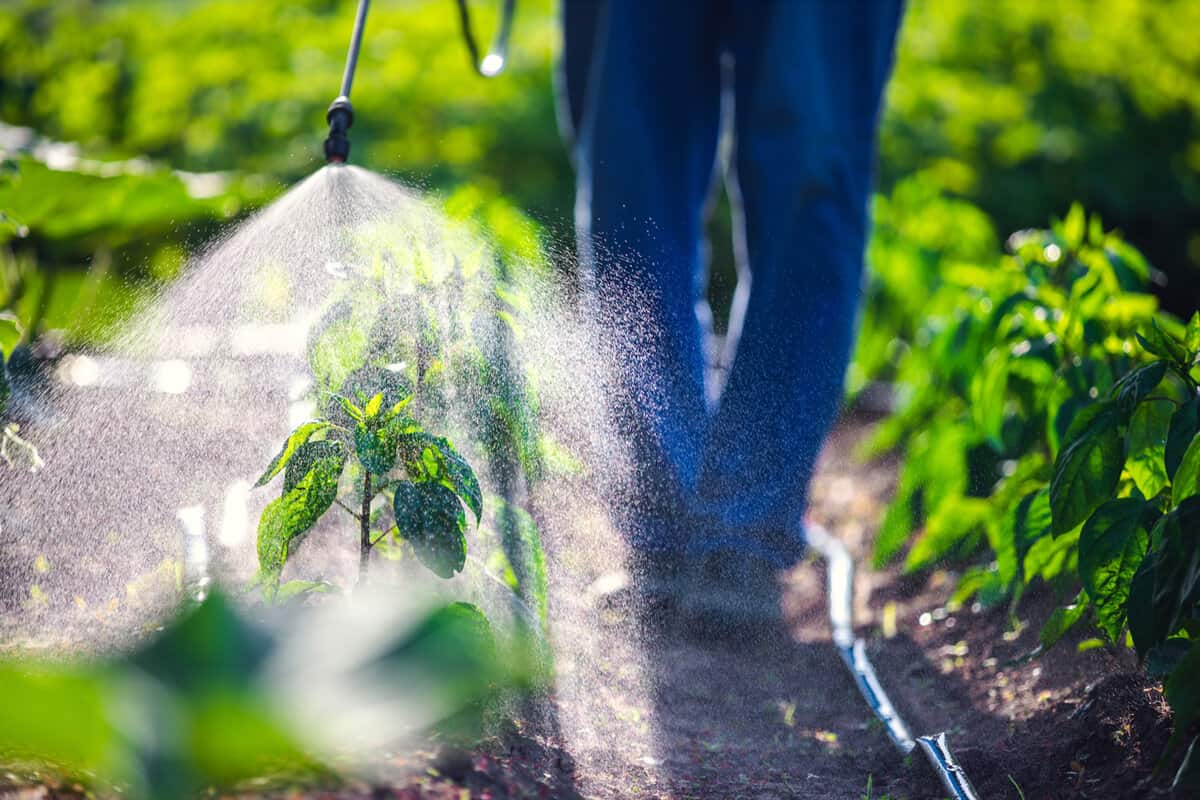
Perhaps the most obvious benefit is that it can help to keep your plants healthy and free of pests.
By using a safe pesticide, you can avoid harming beneficial insects such as bees, which are essential for pollination. In addition, using a safe pesticide can help to protect your family and pets from exposure to harmful chemicals.
Safe pesticides are also more likely to be effective in the long run, as they are less likely to cause resistance in pests. As a result, using safe pesticides is an important part of creating a healthy and thriving garden.
Final Thoughts
While mothballs may seem like a quick and easy solution to pest control, they can be dangerous not just for the pests you’re trying to get rid of but also for your plants and pets. There are many safer and more effective ways to get rid of garden pests without risking the health of your loved ones.
For more tips on keeping your garden safe and well-maintained, see our posts below:



